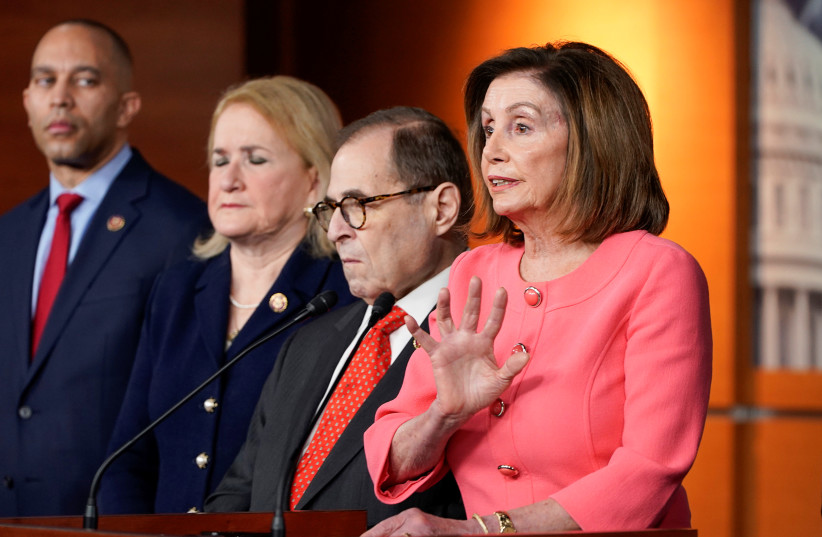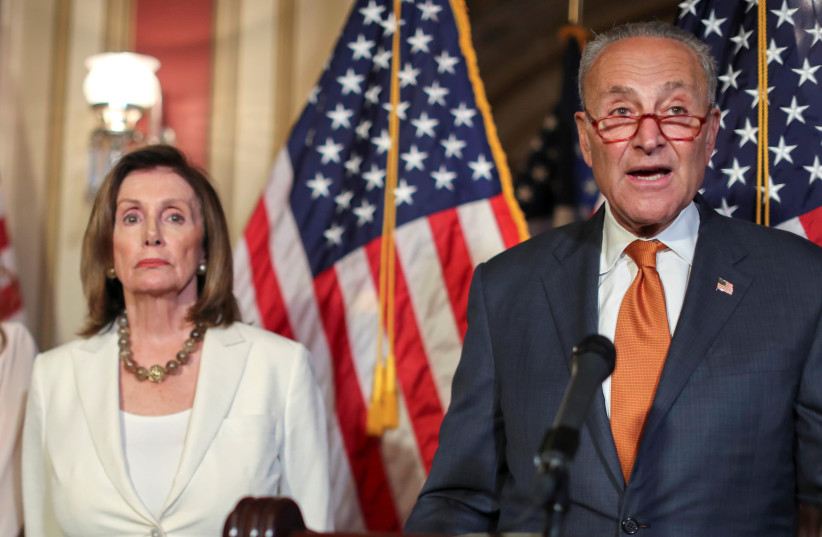Hakeem Jeffries was unanimously elected on Wednesday to become the Democratic Party’s top leader in the House of Representatives beginning in January, making him the first black person to hold such a high-ranking position in Congress.
The vote by Jeffries’s fellow Democrats also marked the rise of a younger generation of leaders in the 435-member House, and the end of the Nancy Pelosi era and control by other Democrats in their 80s.
Jeffries, a 52-year-old New Yorker, will hold the position of House Democratic leader for the 118th Congress that convenes on January 3.
“Our commitment is always to extend the hand of partnership whenever and wherever possible, in order to get things done for everyday Americans,” Jeffries said, when asked how he will work with Republicans.
Also elected as part of Jeffries’s team are Rep. Katherine Clark, 59, of Massachusetts, who won the No. 2 Democratic job, a post known as “whip.” Californian Pete Aguilar, 43, and a member of the Congressional Hispanic Caucus, was elected to Jeffries’s current job of Democratic caucus chairman.

New minority and majority leaders
The new House Minority Whip Katherine Clark is also a long-time endorsee of the progressive JStreetPAC.
“We congratulate all of the new House Democratic leadership, value our relationships with them, and look forward to working together with them to help advance our pro-Israel, pro-peace, pro-democracy priorities,” said Logan Bayroff, J Street’s VP of communications.
The American Jewish Congress called Jeffries “a friend of our organization” in a statement by the organization’s president, Jack Rosen.
“Throughout his political career, Hakeem has shown to be a determined supporter of the Jewish people – one who has never hesitated to call out antisemitism and all those seeking to harm Jews,” Rosen said. “He has been a strong and vocal Israel advocate, and someone not afraid to put progress over party.”
Aaron Weinberg, director of government relations at the Israel Policy Forum, said “all three of the new top leadership of the House Democratic caucus are all pro-Israel and support a two-state outcome.”
“While there may be nuanced differences in the approach that each of them take, all three are aligned on the importance of Israel’s future as a Jewish, democratic, and secure state,” he said. “I would also add that such nuances are not only not without recent precedent, but also standard for any leadership team within a party caucus or conference.”
“As Congress moves into negotiations on the upcoming spending bills, all of their leadership will be critical to secure support for key provisions, including security assistance to Israel,” said Weinberg.
He noted that all three “have previously spoken out against West Bank annexation and cosponsored the House-passed H.Res.326 in 2019, which stated the House’s support for two states and opposition to West Bank annexation.”
Reuters contributed to this report.

